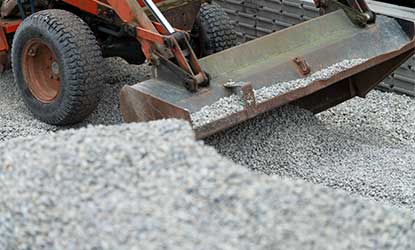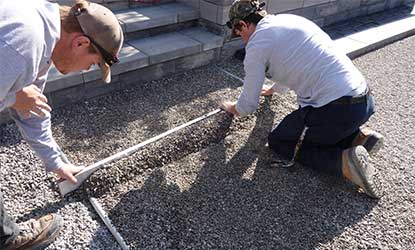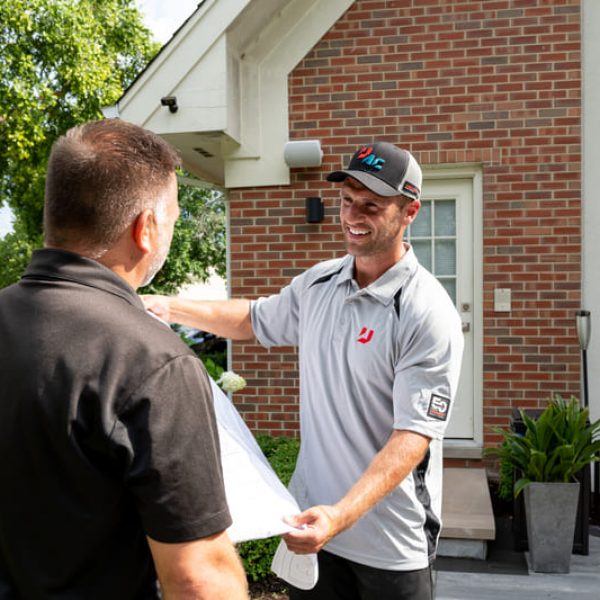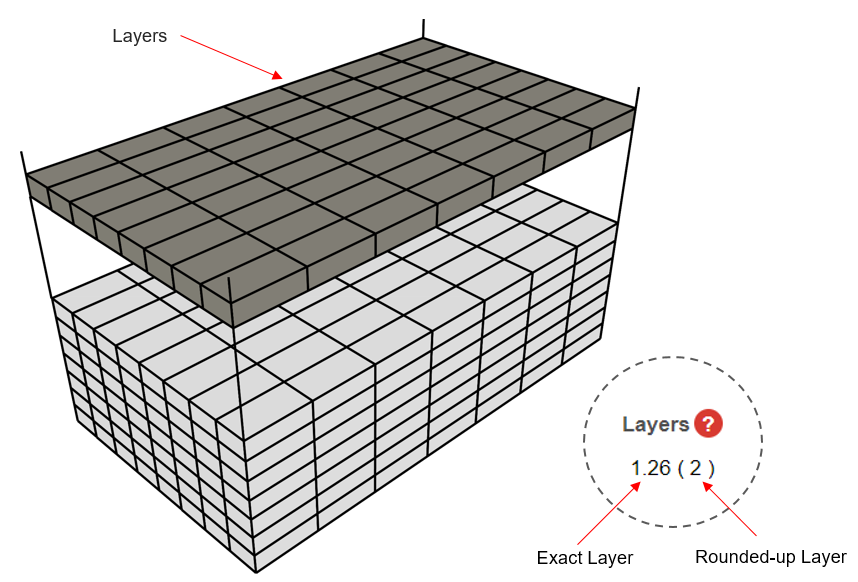Working with a Unilock Authorized Contractor is working with the best of the best. Our UACs possess the knowledge and expertise to bring your dream project to life, and deliver stunning results that will exceed your expectations.
How much base is required for paving stone installation?
In the hardscape world, we talk a lot about the importance of proper base preparation. In fact, the long-term performance of your paving stone project is determined by the quality of the work that is done to prepare the base below your pavers and walls.
Base thickness is dependent on three things:
- Site soil compaction
- Site soil drainage
- Load bearing capacity needed (pedestrian or vehicular)
Let’s look at each one separately:
1. Existing site soil conditions
In a new subdivision, for example, it is very difficult to determine what the existing soil compaction is like because of all the earth moving and grading that has taken place in this new development. In these cases, 6 to 8 inches (16 cm – 20 cm) of gravel might not be enough. In more established neighborhoods (over 10 years old), the ground is much more settled solid and stable. In these areas a 6 to 8 inch (16 cm – 20 cm) base is absolutely fine.


2. Site soil drainage varies by location
If the existing soil on a site is very sandy, you will have good drainage, which prevents frost movement. If a site has clay soil, the drainage is likely poor, which means that you need more base material to provide a frost-resistant layer. In clay areas you should consider a minimum base of 8 inches (20 cm) of gravel for pedestrian use areas and a minimum of 12 inches (30 cm) for vehicular applications, such as driveways.
3. Load-bearing capacity
This is an important factor in determining base thickness. The heavier the load that a surface must be able to carry, the thicker the base needs to be to be able to properly distribute the load to prevent the paver surface from additional settling.
Walkways and patios do not carry any significant loads, therefore the base is typically 6 to 8 inches (30 cm) in established areas, and 8 to 10 inches in newer developments. For vehicular applications, such as driveways, a 10 inch base is generally sufficient in established areas. In newer developments, however, a 12 to 14 inch gravel base may be required.
It is always a good idea to address your particular application with the help of a professional installer, such as a Unilock Authorized Contractor, or speak with your local landscape supply dealer. They are experienced in determining the gravel requirements for specific areas.
Finally, the amount of gravel can be reduced in certain driveway applications by the use of DriveGrid®, an engineered mesh that is embedded in the gravel base to provide additional structure. By reinforcing the base, a typical 12 inch base may be reduced to an 8 inch base, which can represent significant savings for the site owner.
Spending the time ahead to properly understand your subsurface will set you up for a successful project that will truly stand the test of time.
Related Articles

We’re Here
To Help

Browse our Design Idea Catalog
Explore endless design possibilities through our Design Idea Catalog. Browse our extensive portfolio of paver and wall products, and get inspired by our outstanding design projects that will fuel your creative expression.

Visit an Outdoor Idea Center
Experience the beauty and quality of Unilock paver and wall products in a life-sized setting by visiting a local Outdoor Idea Center. Our knowledgeable and friendly staff are on hand to answer any questions and offer free product samples.





